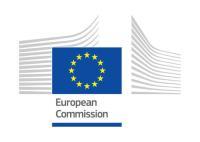Bangladesh is one of the most densely populated and climate vulnerable countries in the world. 95% of the 1.7 million metric tons of crude salt produced each year, about 10% of the shrimp and prawn aquaculture production and 80% of the shrimp post larvae produced in the Cox's Bazar district. The salt industry engages some 50,000 artisanal salt farmers and provides livelihoods to approximately 1.5 million people.
Specific objectives are to (i) Introduce an integrated salt and Artemia production system and (ii) Increase marine aquaculture productivity and production in the salt farms in Cox's Bazar district.
The low profitability, climate induced risks, low productivity of coastal aquaculture and limited options for livelihood improvement has resulted in economic vulnerability of the salt farmers. Recent investigations suggest that Bangladeshi salt/aquaculture farmers are unaware of the potential of Artemia farming as well as the real potential for shrimp and fish production in the salt farms. Several south Asian countries (for example Thailand and Vietnam) have adopted new technologies to integrate Artemia and aquaculture production to improve the profitability of salt farms.
The project impact is to increase food security, income and improve dietary nutrition of salt/fish farmers’ households in the Cox’s Bazar area. The strategy will ensure stakeholders engagement in implementation through demonstration farms to develop integrated salt, Artemia and aquaculture models. It will develop improved technologies and practices through research and innovation. Through capacity building and facilitating linkages and networks enhanced extension services will increase access and availability of information. Laboratories will be established for quality assurance of the Artemia product. Project information will be actively disseminated using print and electronic media. Policy/regulatory issues will identified through interaction with stakeholders including policy makers. The reproducible integrated salt, Artemia and aquaculture models, involvement of private sector and workshops and visits to these facilities will promote and facilitate the scaling. The expected outcome is the increased integrated production of salt, aquaculture and Artemia in the salt farms. Climate induced hazards such as prolonged cold winters, high temperatures, erratic rainfall, floods, cyclones, political instability are potential risks to achieve the outcomes. The major outputs are improved knowledge on Artemia biology, production, processing and preservation; improved technologies to establish Artemia cyst and salt integrated production system effectively and widely adopted. This will decrease marine aquaculture production costs due to low cost locally produced Artemia cyst and increase the revenue of salt farmers.
WorldFish will be the lead agency. A Program Steering Committee, including representatives from the European Union Delegation office, WorldFish, partners and farmer representatives will ensure multi stakeholder approach in project implementation. The work packages will be: (i) project management, collaboration with partners and stakeholders; (ii) overview of crude salt production system, scope of integration with Artemia and aquaculture; (iii) identification of demonstration farms; (iv) testing the feasibility, adoption and dissemination of Artemia and aquaculture production systems; (v) increasing marine aquaculture production and productivity through improvement of seed and production technologies; (vi) cross cutting themes covering climate smart management and gender; and (vii) monitoring pathways to impact.
